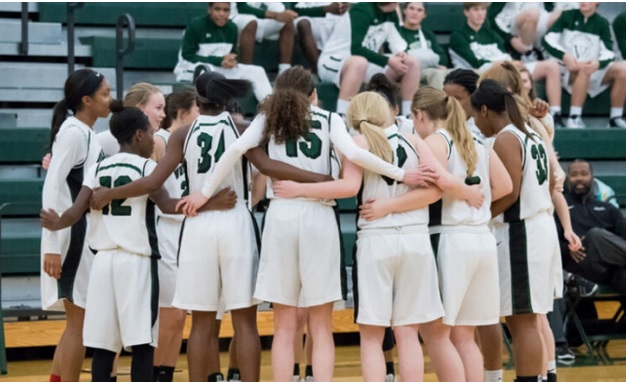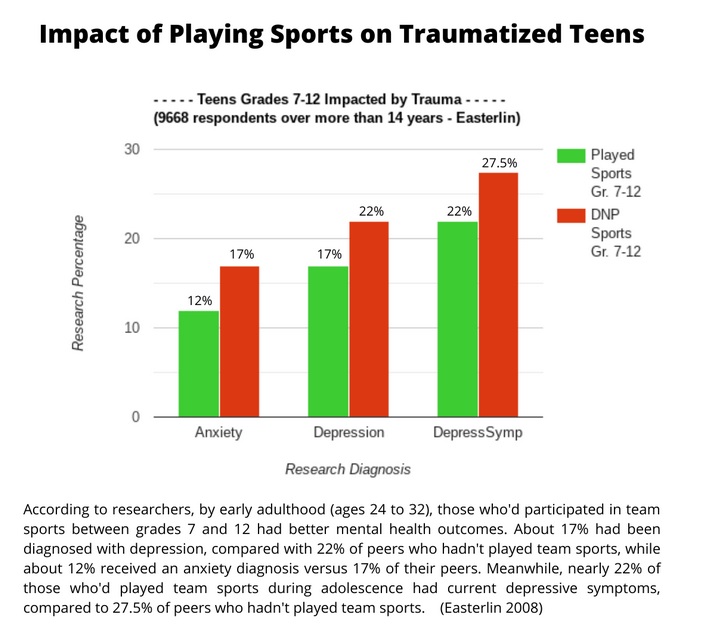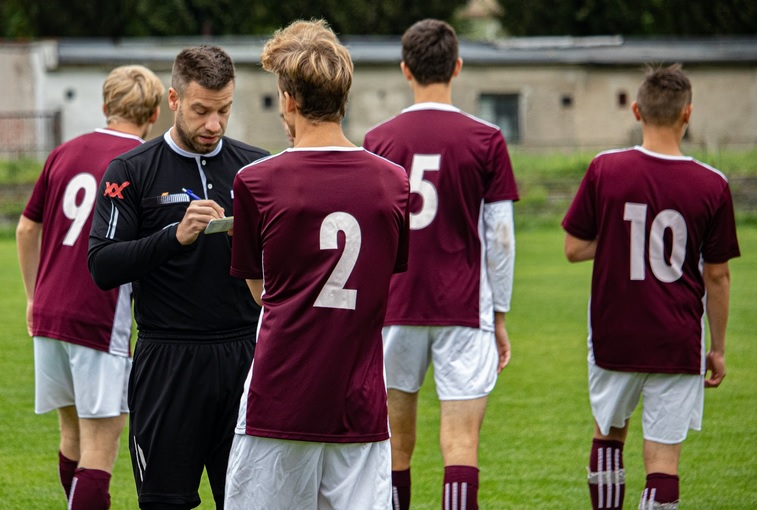Healing Trauma with Sports

Playing team sports can heal a developing brain from the impact of emotional trauma and extreme stress and promote improved mental health.
Sure, it’s fairly obvious that playing team sports can be healthy for many reasons, but now the latest brain research shows how the natural and normal activities performed during team sports participation will actually heal the parts of the brain that may be underdeveloped or wounded by previous traumatic experience or current extreme stress.
As an example, research indicates teenagers who participate in team sports have significantly lower rates of anxiety and depression while in high school and then also into adulthood.

More good news is that most athletes, parents, coaches and other sports mentors can quickly learn simple things to do intentionally while playing sports to heal the brain while achieving peak performance.
How the brain functions during team sports participation is a huge focus for new brain research.
Sports engagement and performance is dependent on different states of the brain, which range from a clear-thinking creative brain state to a severely protective “fight or flight” survival brain state.
The brain has neuroplasticity, which means it can be changed. Purposeful sports routines and healthy communication from surrounding adults will facilitate that change.
A young athlete’s brain has been wired differently due to toxic relationships or stressful environments, which then causes challenging outward behaviors, and playing team sports will help create new brain connections and cause more resilient behavior.
There are simple strategies to integrate into sports programming that can help athletes get their brains ready for sports engagement, performance, leadership and collaboration. These sports brain routines will facilitate the brain’s healing.

Just as physical fitness is vital to play sports successfully, mental fitness is just as important.
Players and coaches can develop “brain warm-ups” that will better prepare the brain for training and competition. These can be done by athletes during physical warm-ups and stretching. Many elite athletes have integrated brain warm-ups into their pre-training and pre-game routines.
But it goes far beyond sharpening mental toughness. By combining patterned, repetitive physical warm-ups, with mindful brain warm-ups, young athletes will be empowered to heal their brains while achieving peak performance.
Athletes, parents and coaches will benefit from knowing the connection between playing team sports and emotional healing. The new awareness will provide a deeper understanding of how valuable the team sports experience is for all young athletes, but especially those impacted by trauma and extreme stress.
On top of all of the other healthy reasons to play team sports, young athletes, their parents and coaches can take charge and can now facilitate their own healing.
For more information, visit SportsBrainCoach.com
——————
Marty Wolner is a certified and licensed stress and trauma educator, peak performance specialist, and executive coach, empowering those who want to manage their stress more effectively. After a successful career covering news and sports for the Associated Press, Marty is now certified in the Neurosequential Model of Sports and works with elite and professional athletes to help heal trauma with sports.